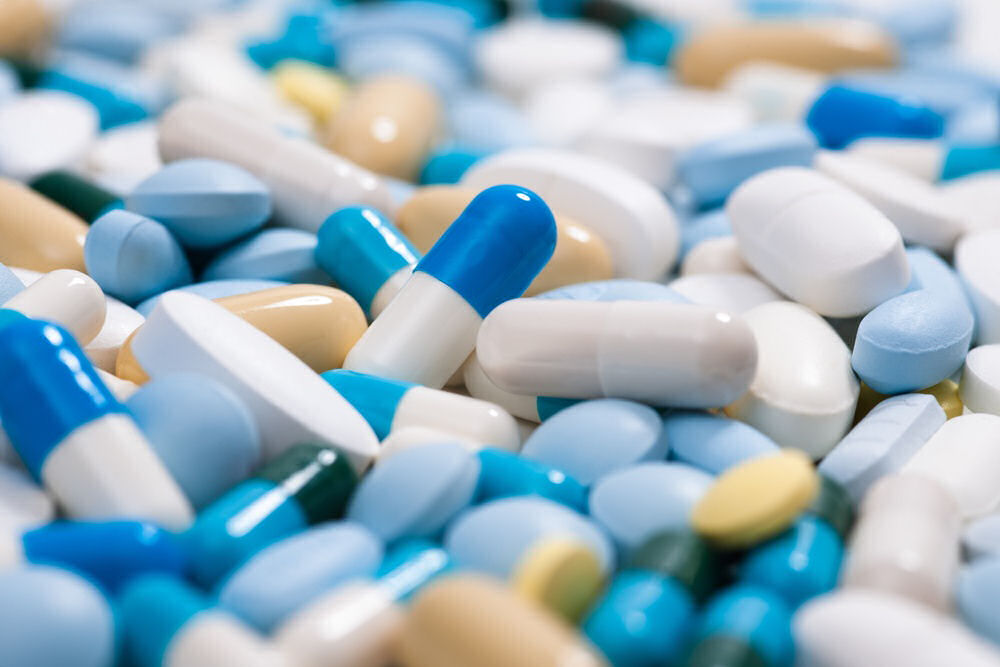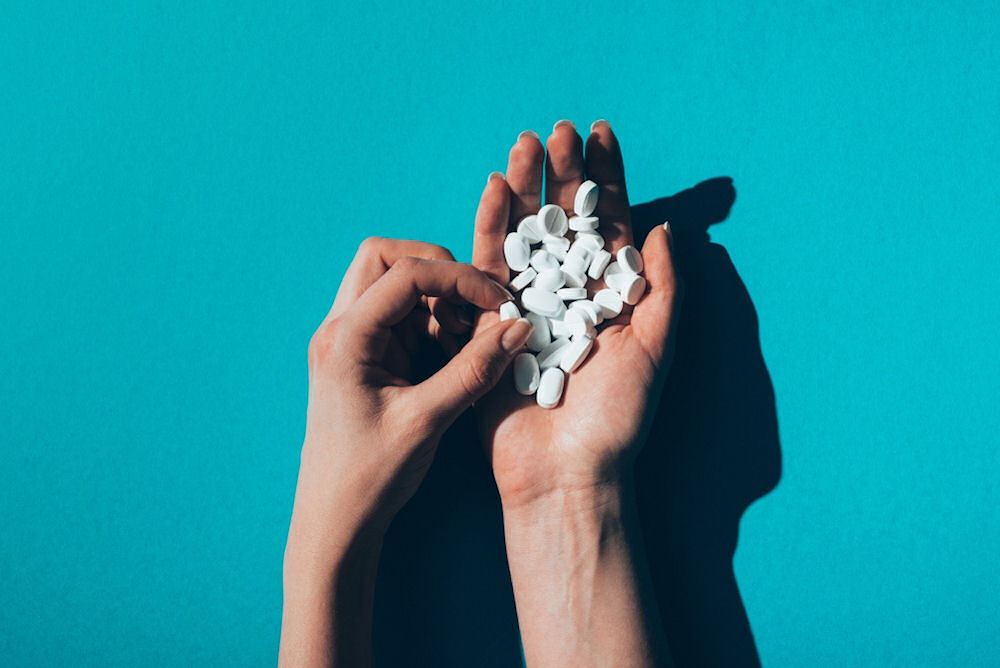It is always risky to combine substances, but it is hazardous to combine benzos (benzodiazepines) with alcohol. The intentional use of more than one substance within a short period is called polysubstance use, and it is never a good idea. It can cause effects that you can’t predict. The result of combining drugs is effects that are stronger than either drug alone and may be fatal.
What Are Benzodiazepines?

Benzodiazepines belong to a class of medications that reduce the activity in your brain and central nervous system. The decrease in your nervous system activity makes them helpful for various symptoms and conditions. Most of the time, they are used to treat anxiety, brain-related conditions like seizures, and related mental health conditions as well.
The United States and many other countries classify benzodiazepines as controlled substances. This means you’ll need a prescription to get them, and having or obtaining them without a prescription is illegal. Benzodiazepines are controlled because they can be habit-forming and may have dangerous effects when misused. Breakwater Behavioral Health offers prescription drug treatment in Orange County, California.
How Do They Work?
Your nervous system uses chemical and electrical signals to send messages through your body. The neurotransmitters (chemical signals) attach to cells with the right receptors. Neurotransmitters can only fit into the right receptor, like a key into a lock. If it fits, the neurotransmitter activates a process in the cell.
The benzodiazepines tell your brain to release the neurotransmitter GABA. The job of GABA is to reduce your nervous system activity. The slowed activity can cause:
- Hypnosis
- Sedation
- Anxiety relief
- Muscle spasms
- Reduction of seizures
- Sleepiness
- A relaxed mood
Benzos are also associated with hostility, amnesia, irritability, and disturbing or vivid dreams.
Types of Benzos
 There are three types of benzodiazepines:
There are three types of benzodiazepines:
- Short
- Intermediate
- Long-acting
The short-acting benzodiazepines have more severe withdrawal effects and can be more addictive than the long-acting ones. Some common benzodiazepines are:
- Diazepam (Ducene, Valium) – long-acting
- Clonazepam (Klonopin) – long-acting
- Nitrazepam (Alodorm, Mogadon) – intermediate-acting
- Alprazolam (Xanax, Alprax, Kalma) – short-acting
What are the Dangers of Mixing Benzos and Alcohol?
Alcohol and benzodiazepines both have a depressant effect on your central nervous system. In addition, when these substances are combined, memory impairment is much more likely. Prolonged abuse or high doses of benzodiazepines can cause significantly impaired memory, mood swings, and changes in behavior. Frequently, people who abuse these substances develop a tolerance to their effects. It takes more of them to achieve the same high.
When drugs are taken together, it intensifies the effects. Taking more than one depressant drug, such as alcohol and benzodiazepines, increases the risk of overdose or death. The CDC reported that almost half of overdose deaths in 2019 were linked to polysubstance use.
Although some individuals can combine alcohol and benzos and never experience any side effects, others will suffer a fatal overdose. There is no safe amount of alcohol use for people taking benzodiazepines. Breakwater Behavioral Health can assist with alcohol addiction.
Combining benzodiazepines with alcohol can cause:
- Breathing problems
- Increased risk of overdose
- Death
What is the Treatment for Benzos and Alcohol Misuse?
If you’re addicted to benzos and alcohol, there is treatment to help you overcome the problem. But you must start by recognizing the problem and reaching out for help. Ironically, benzodiazepines are sometimes used to treat alcoholism and symptoms of alcohol withdrawal.
Polysubstance Misuse
According to the Substance Abuse and Mental Health Services Administration (SAMHSA), treatment for polysubstance use has some particular requirements. Treatment should focus on:
- Intoxication and withdrawal from two or more substances
- Withdrawal symptoms appear at different times
- Interactions between the substances and the medications used to treat the substance use disorder
Medication and counseling are the recommended treatment. SAMHSA also supports using 12-step programs and behavioral treatment that use incentives to encourage positive behavior changes, also known as contingency management (CM).
What are the Treatment Programs?
Because alcohol withdrawal alone can be a life-threatening ordeal, a medically managed and supervised detoxification may be the first step in treatment. Medical professionals can keep you safe and comfortable while your body rids itself of the substances. Once the physical dependence is broken, you are ready for treatment to break the mental addiction. Based on the substances used, withdrawal symptoms may vary but are likely to include:
- Mood swings
- Sweating
- Nausea or vomiting
- Pain
- Irritability
- Hallucinations
- Seizures
- Fatigue
In a residential treatment program, you live at the treatment center with 24-hour monitoring and treatment. By living at the treatment facility, you are removed from the temptations and triggers of the outside world that can completely derail your recovery.
Sadly, about 50% of people with a substance use disorder also have a mental health disorder. The presence of these two disorders at the same time is called a dual diagnosis, and it requires simultaneous treatment for both disorders. Some common co-occurring mental issues are:
- Anxiety
- Depression
- Obsessive-compulsive disorder (OCD)
- Trauma/Post-traumatic stress disorder (PTSD)
Mental health professionals experienced in addiction therapy will help you design a treatment program based on your needs. Intensive therapy will help you explore your feelings, thoughts, and behaviors as they relate to your drug use. You’ll learn:
- Coping skills
- Problem-solving skills
- Relapse prevention skills
Some types of therapy include:
- Cognitive behavioral therapy (CBT)
- Contingency management (CM)
- Dialectical behavior therapy (DBT)
- Motivational interviewing (MI)
- Group and individual therapy
- Peer support groups
- Family therapy
You may need MAT to help manage mental health symptoms and reduce cravings and urges to use.
Breakwater Behavioral Health Can Help You with Addiction
If you or a loved one is struggling with this polysubstance use disorder, there is help at Breakwater Behavioral Health in Orange County, CA. Our luxury treatment center can offer the necessary treatment to help you recover from this potentially debilitating disease. Our counselors are addiction specialists with the years of training and experience you need to achieve long-term recovery success.
At Breakwater Behavioral Health, we know you are unique so we will develop a treatment plan specifically for your needs. If you’re suffering from a co-occurring mental disorder, we have a special dual diagnosis program. After you complete your formal treatment program, we can help you maintain your recovery progress with aftercare therapy, events, and support groups. Although it might not feel like it right now, you are not alone. Contact us today.

